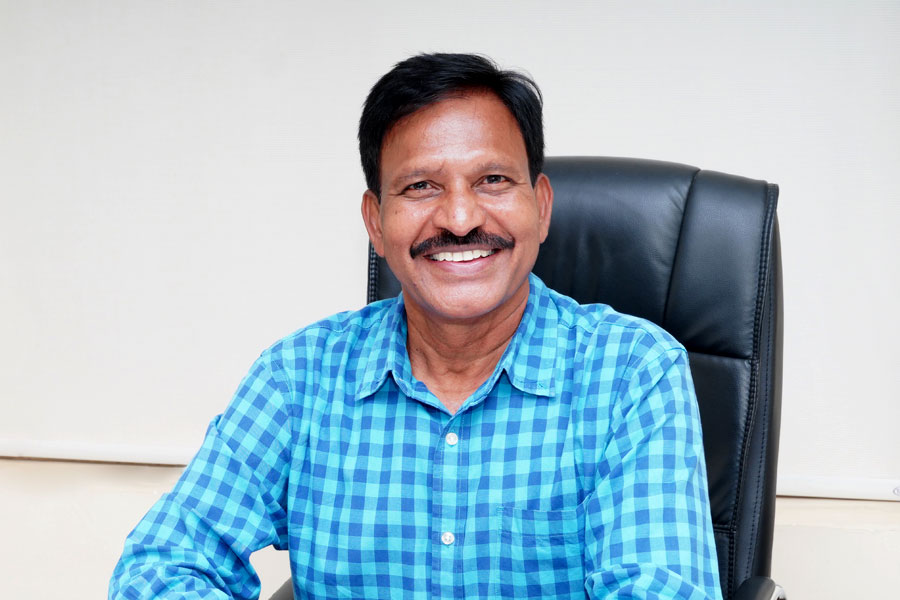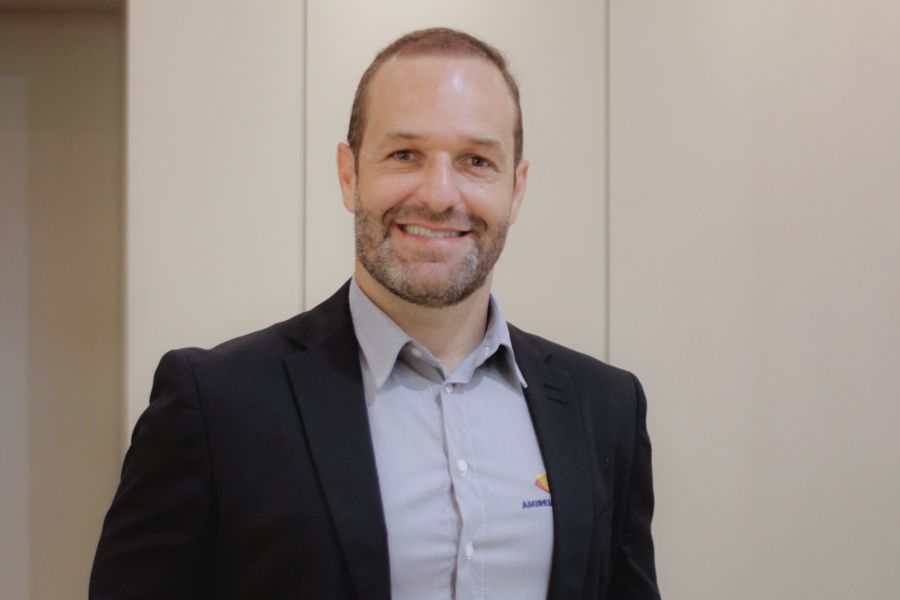India has well established traditional wisdom in food processing
Dr Venkata Rangaiah Setlem, CEO, INDIGENE PROTEIN FOODS PVT LTD, opines that Indian traditional foods are best positioned as functional foods, because of the presence of functional components such as body-healing properties, antioxidants, dietary fibers, and probiotics. But he stresses on the need for investments, backward and forward linkages and strong branding & marketing mechanisms to boost the Indian food processing industry.

IBT: How would you describe the journey of INDIGENE PROTEIN FOODS PVT LTD, its vision, and key achievements?
Dr Venkata Rangaiah Setlem: INDIGENE PROTEIN FOODS PVT LTD is an Indian food processing company specializing in manufacturing healthy and functional foods to help consumers to live their life to the fullest. Traditional wisdom about the processing of food, natural preservation techniques, and therapeutic effects have been established for many generations in India.
INDIGENE innovated and developed products based on the simple fact that at different stages of life, the constitution of the human body changes, and it requires unique recipes and nutrition that may help to maintain metabolism or overcome deficiencies of essential substances in the body. Some of the products developed by Indigene include:
- Nutritional functional bars for India and other Asian countries.
- Therapeutic foods for western countries and others.
- Malnutrition foods for African countries.
- Specialty spice foods [immunity boosting] for India and the West.
- General foods for India and the West.
IBT: What is your company’s reach as per product segments and markets?
Dr Venkata Rangaiah Setlem: INDIGENE products are useful, simple foods, easy to consume, ready to eat, easy-to-digest, natural foods, solids, liquids, or powdered products with an environment-friendly convenient packaging. Hence, the reach is very high in terms of demography, gender and preferences. Some of the key markets where our products are exported are countries in Asia, Africa, and the West.
IBT: What are the key ingredients for success in international markets in your view?
Dr Venkata Rangaiah Setlem: A string of factors have led to our success in the export market:
- Our products are quite natural, made out of no added sugars, chemical-free, have no additives, and long shelf life. This is one of the reasons for their popularity in the market.
- We invest in world-class packing that contributes to the safety and durability of our products.
- The ingredients used in our various products are sourced from across the globe and are well known to our consumers.
- The tastes and textures of these products are appreciated by our customers.
IBT: What are the key lessons from the COVID-19 pandemic? How have you adapted and realigned your business model?
Dr Venkata Rangaiah Setlem: Though products were designed well before the pandemic, they have become apt in the current times as many ingredients are known to provide very vital nutrition that helps the body to attain natural immunity. Fresh food and ready-to-eat foods witnessed a big jump in B2C and made up for the revenue losses that certain companies incurred in B2B businesses. Going forward, direct-to-home will contribute a substantial share of the overall revenue.
I firmly believe in Albert Einstein’s famous saying, “In the midst of every crisis, lies a great opportunity”. The deadly COVID-19 pandemic pushed the fresh food start-ups to reinvent their distribution models. As a result, companies grew substantially. During the peak of the lockdown, when most stores had to pull down their shutters as companies’ distribution networks came to a halt, our strategy of owning the distribution came in handy. We distributed COMPANION health foods and KINE UHT milk to consumers directly.
IBT: What advice would you like to give to young entrepreneurs on managing risk, coping with failure and leadership?
Dr Venkata Rangaiah Setlem: Normally, young entrepreneurs exhibit aggressiveness and a risky attitude. Due to a lack of focus on the resources and raw materials, there will be an imbalance between yields and expectations leading to threats and failures. So planning is crucial along with prioritizing and making a proper sequence in the business. The whole business should be secured by buying insurance, if available.
There should be a quality assurance program that gives quality products which is crucial to sustaining in the market. They must take caution and avoid high-risk customers, areas, or components in the business. Finally, there should be a clear management system in place with a proper information flow from top to bottom.
IBT: How do you view India’s level of competitiveness and potential in the healthy and functional foods sector, and how can it be enhanced?
Dr Venkata Rangaiah Setlem: The sector we have chosen is unique and completely based on food heritage, modern technology, and nutrition. Traditional wisdom about the processing of food, its preservation techniques, and their therapeutic effects have been established for many generations in India.
Our food systems can deliver numerous biological functions through dietary components in the human body. Indian traditional foods are best positioned as functional foods because of the presence of functional components such as body-healing properties, antioxidants, dietary fibers, and probiotics. These functional molecules help in the prevention of diseases, weight management, blood sugar balance, and support the immunity of the body.
In INDIGENE, there has been a vast R&D on enhancing the functional properties of foods by processing techniques and best quality assurance methods.
IBT: Government has announced schemes such as PLI and Atmanirbhar Bharat. How can these be leveraged to enhance India’s processed food industry and enhance its global share in line with its rich agri potential?
Dr Venkata Rangaiah Setlem: Though there is distinct evidence on the ground that food products are very essential and have an abundant market, most entrepreneurs are unable to market their products properly. This is because of under investments both in the individual units and in the sector, poor backward and forward linkages and meager or no branding & marketing mechanisms.
The government has initiated the right kind of schemes under PMKSY which can literally strengthen the entrepreneurs to a great extent, as the supports are intended to invest in cold chain infrastructure, backward & forward linkages and branding & marketing. This will help in changing the face of the Indian food processing industry to double its capacity of production in a short time.
IBT: What role can FTAs play? How can market entry barriers be eased for Indian exporters?
Dr Venkata Rangaiah Setlem: India is well equipped technologically and in terms of skills. We are producing world-class products especially with more shelf life and quality nutrition. There has been a lot of innovation in process technology. As a result, we have substantially become capable of producing world-class food products that can cater to global requirements. This is the right time for the Indian government to enter into FTAs with both developed and developing countries, whichever is possible, that can help exporters can easily reach the global markets.
Dr Venkata Rangaiah Setlem is the CEO of Indigene Protein Foods Private Limited. Views expressed are personal. This interview is a part of TPCI’s Connect initiative.













Very good nice to hear in promoting such qualitative and quantitative Protein supplement especially in present pandemics for under developed country’s and developing countries
The interview of Dr.Rangaiah on Food processing is exhaustive and very much useful for the new entrepreneurs.The products of Indigene Protein Foods pvt.ltd; are very much useful in the pandemic situation. Thanks to TPCI and Dr.Rangaiah garu.